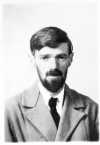Daily Content Archive
(as of Wednesday, September 11, 2019)| Word of the Day | |||
|---|---|---|---|
| |||
| Article of the Day | |
|---|---|
 CaribouCaribou, or reindeer, are wild, North American arctic and subarctic deer that are capable of traveling 3,000 mi (5,000 km) a year and reaching speeds of up to 50 mph (80 km/h). Each year, millions of caribou in northern Canada and Alaska migrate in large herds, using their wide, sharp-edged hooves to travel on snow and ice and even swim across wide lakes or rivers. Caribou derive their name from a word in the Mi'kmaq language meaning "snow-shoveler"—a reference to their habit of doing what? More... | |
| This Day in History | |
|---|---|
 9/11 Terrorist Attacks (2001)On September 11, 2001, 19 Al-Qaeda terrorists hijacked four commercial airplanes. They crashed two planes into the World Trade Center's Twin Towers in New York City and flew a third into the Pentagon building in Virginia. Passengers on the fourth flight attempted to retake control of the aircraft, but it crashed in a Pennsylvania field. The devastating terrorist attacks of 9/11 were responsible for 2,996 deaths and countless more injuries. What were the environmental consequences of 9/11? More... | |
| Today's Birthday | |
|---|---|
 David Herbert "D.H." Lawrence (1885)Lawrence was an English writer whose works condemned industrial society and explored sexuality, often drawing on his own life for inspiration. Now noted for their intensity and erotic sensuality, several of his works, including Lady Chatterley's Lover, were banned as obscene. Persecuted for being a pacifist and shunned for having a German wife during World War I, he left England forever. He died of tuberculosis in France. Lawrence once acquired a ranch in New Mexico in exchange for what? More... | |
| Quotation of the Day | |
|---|---|
 I never could have done what I have done, without the habits of punctuality, order, and diligence, without the determination to concentrate myself on one object at a time. I never could have done what I have done, without the habits of punctuality, order, and diligence, without the determination to concentrate myself on one object at a time.Charles Dickens (1812-1870) | |
| Idiom of the Day | |
|---|---|
send a shiver down (someone's) spine— To cause an intense feeling of excitement, exhilaration, nervousness, or fear in someone. More... | |
| Today's Holiday | |
|---|---|
 Enkutatash (2025)The Ethiopian New Year falls on the first day of the Ethiopian month of Maskarem, which is September 11 on the Gregorian calendar. It comes at the end of the rainy season, so the wildflowers that the children gather and the tall grass that people use to cover their floors on this day are plentiful. Small groups of children go from house to house, singing songs, leaving bouquets of flowers, and hoping for a handful of dabo, or roasted grain, in return. In some parts of Ethiopia it is customary to slaughter either a white-headed lamb or a red chicken on this day. More... | |